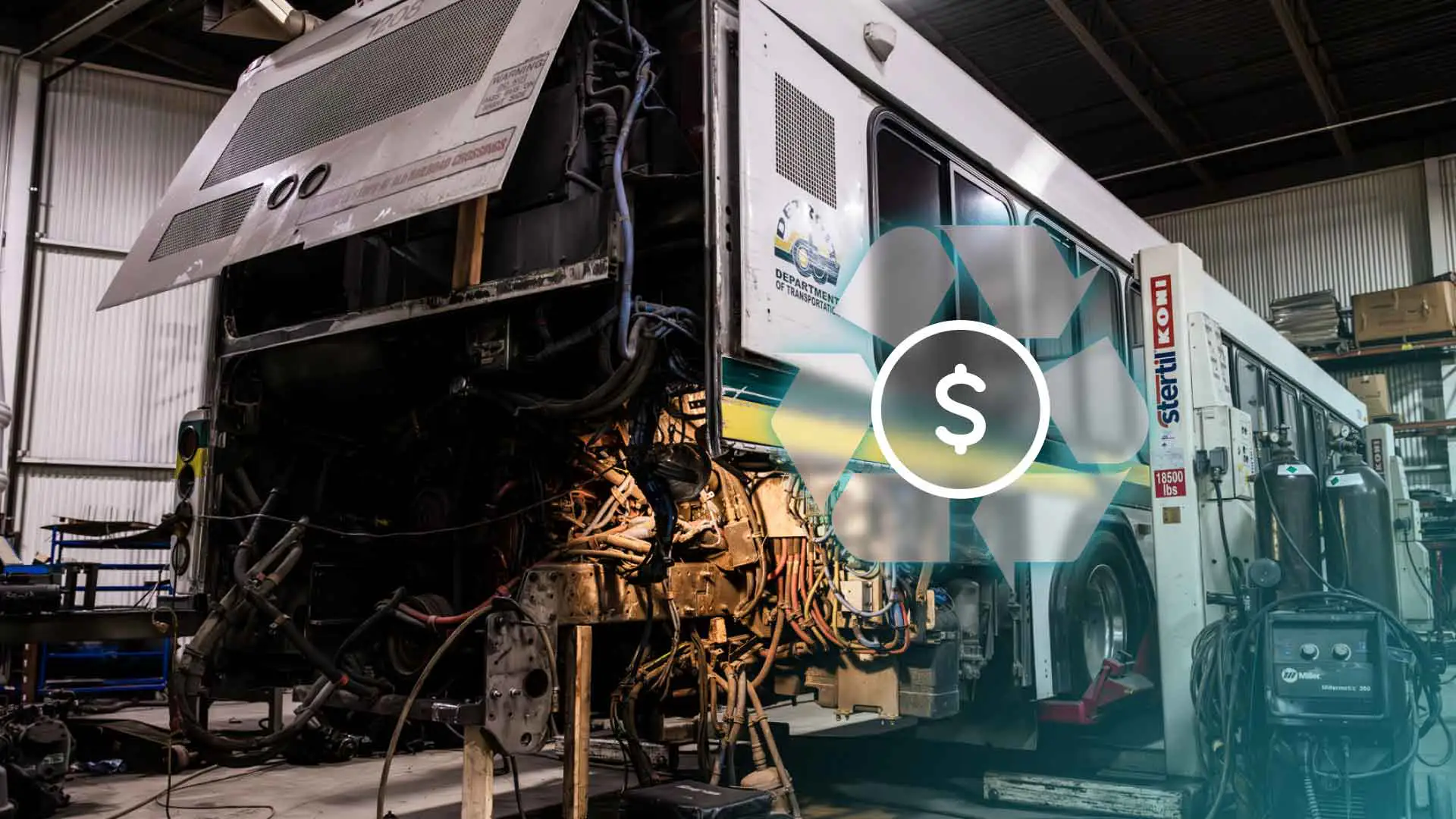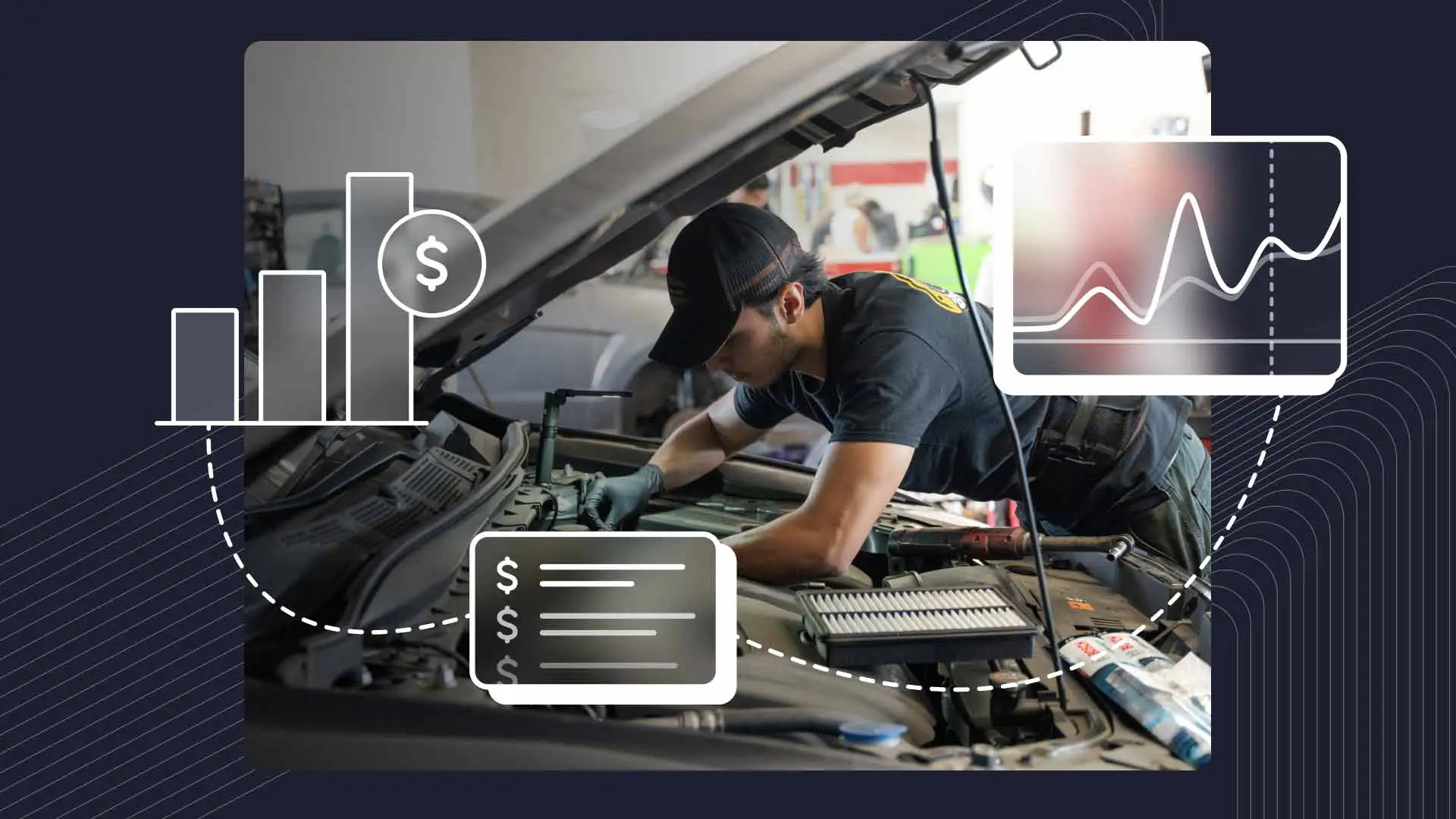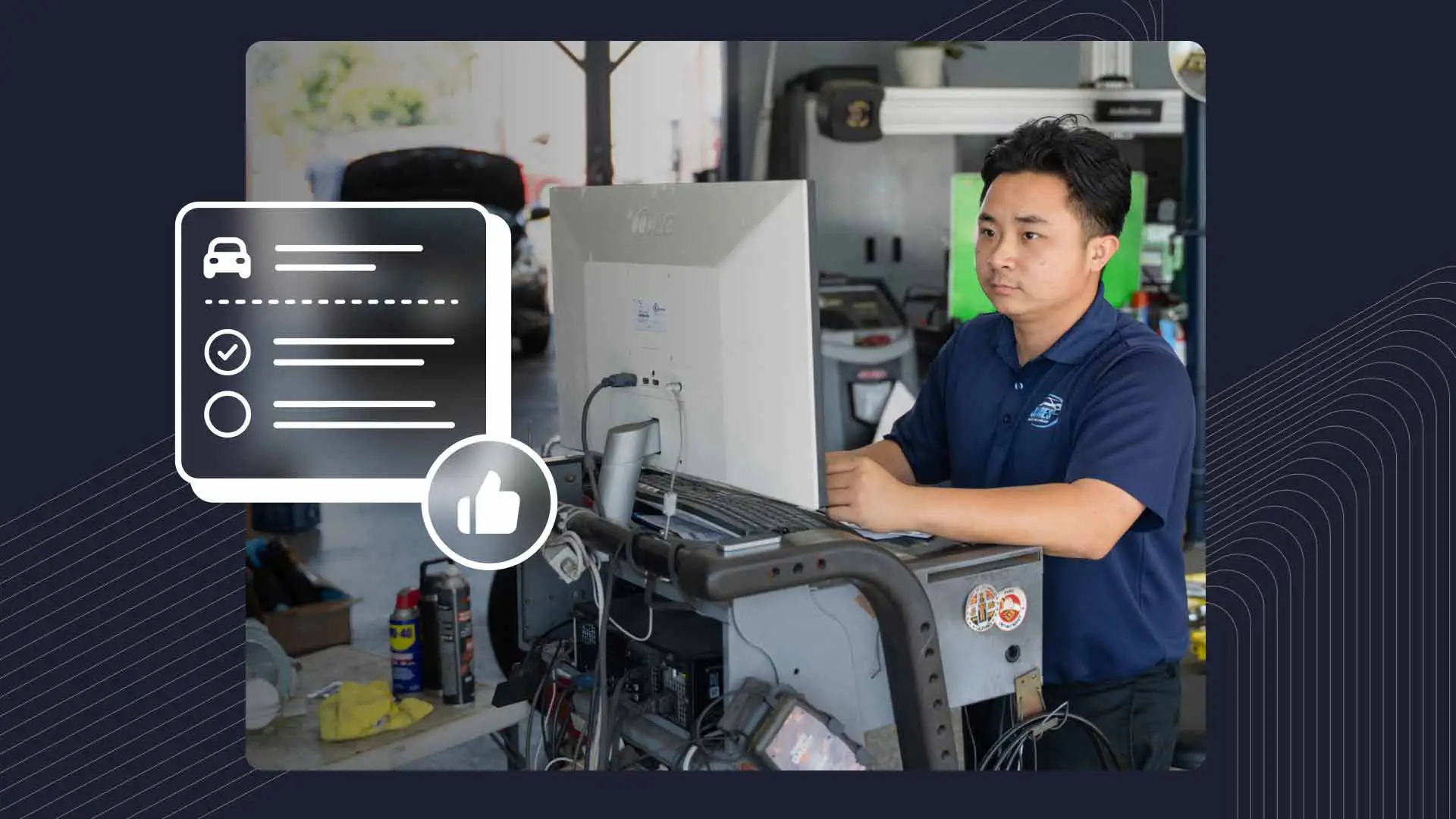Despite covering more than 300 billion miles each year, the trucking industry has made some impressive progress in reducing waste and pollution. There’s a lot less particulate matter and CO₂ in the air these days thanks to modern innovations like diesel particulate filters (DPFs) and selective catalytic reduction (SCR). In fact, emissions from new trucks are 98% lower than they were just three decades ago.
The industry’s focus on reducing its carbon footprint has led truck repair shop owners to rethink some of the ways they approach their business, especially when it comes to environmental fees. While these fees may seem like just another added cost for customers, they’re actually a way to balance out the expenses of running a more eco-friendly shop.
Let's dive into the deep end of environmental fees, weigh their pros and cons, and figure out the best way to work them into your truck repair business.
Environmental Fees in the Context of Truck Repair
When you change a truck’s oil, the used oil, filters, and even rags need to be disposed of safely. To offset the costs of properly eighty-sixing these and other materials like batteries, antifreeze, and solvents, shops add an environmental fee to the bill. These small charges also help defray the costs of recycling old tires and scrap metal, as well as maintaining a truck’s emissions control systems–DPF regeneration, EGR valve cleaning, etc. They could even go toward covering permits, inspections, and compliance with local, state, and/or federal regulations. Long story short, environmental fees help shops manage the costs of running a sustainable business.
Arguments for Charging Environmental Fees
1. Covering Operational Costs: Getting rid of waste the right way isn’t cheap; disposal companies charge fees, too. Plus, meeting environmental requirements involves additional expenses like staff training, buying special equipment, and carrying the appropriate certifications. Charging an environmental fee helps ensure these costs don’t eat into your profits.
2. Transparency & Fairness: Customers deserve to know where their money goes, and clearly noting environmental fees on your invoices does just that. It shows clients that your shop is upfront about the costs of servicing trucks responsibly. They should appreciate both your transparency and efforts to minimize the environmental impact of repairs.
3. Customer Education: Unfortunately, not everyone understands the importance of proper waste disposal and recycling practices. Environmental fees offer a chance to start a conversation with customers and educate them on sustainability in the truck repair industry. These conversations can position your shop as an eco-conscious business, and might even inspire customers to go greener in their own lives.
Arguments Against Charging Environmental Fees
1. Competitive Disadvantage: Charging environmental fees can put a shop behind the eight ball, competitively speaking. Customers are often sensitive to repair costs, and some shops may decide to ditch these fees in order to attract more business. This skews the playing field, making it harder for shops that do charge the fees to compete.
2. Customer Resistance: Nobody likes seeing extra charges on their bill, even if it’s just a few dollars. The perception of additional fees can be a turn-off–some customers might view them as unnecessary, or think they’re just helping pad the shop’s profits. You should be able to clearly explain what these fees cover and reassure customers that you’re not nickel-and-diming them.
3. Public Perception: Although environmental fees are easily justified, they could come across as “greenwashing” and potentially damage your shop’s reputation. Customers are wary about being taken advantage of, so you need to carefully manage your messaging and communications to make sure your intentions aren’t misunderstood.
Finding the Right Balance
The key is to strike a balance between staying profitable and keeping customers happy. It starts with clear and transparent pricing. You never want to lump environmental fees into some general “service charge.” That’s asking for trouble (i.e., pushback from customers). Instead, list them separately on the invoice so customers know what they’re paying for, and why.
Customers want to do business with shops that operate responsibly. And environmental fees can be positioned as an investment in doing things the right way. By showing how they contribute to cleaner air and help protect the environment, you’re basically flipping the script. For example, it’s hard for customers to argue about a small fee that goes toward preventing groundwater contamination or air pollution.
Proactive communication is another biggie. Instead of waiting for questions to come up, take the initiative and let customers know the reasons behind environmental fees. You can mention it in your signage, newsletters, website, or even in face-to-face conversations. Even better: Have some facts or data to highlight the impact of your efforts so customers can clearly see the value in these charges.
If environmental fees are still a tough sell, you may want to look at other ways to mitigate those costs. Grants, rebates, and loan programs from the federal government, along with some states and municipalities, offer financial relief for businesses that pursue certain green initiatives. Or, you could try to strike a deal with a local recycling center.
A Measured Approach to Eco-Fees
For truck repair shops, deciding whether to charge environmental fees isn’t always an open-and-shut case. While these costs can help lighten the financial load of running a sustainable business, they may also invite resistance from customers, or put you at a competitive disadvantage against shops that don’t include them.
It helps to think about the short- and long-term impacts of charging a hazardous material fee. While customers may push back at first, over time the benefits usually outweigh the risks. Before taking the plunge, however, see what your customers think, and look at how your competitors approach it. Ethically, limiting your shop’s environmental footprint is a given–the only question is finding an approach that best fits your business.
Don’t forget, having state-of-the-art tools can make a huge difference. And investing in the right heavy duty truck repair shop software streamlines operations while adding more green to your bottom line. Request a demo today!




